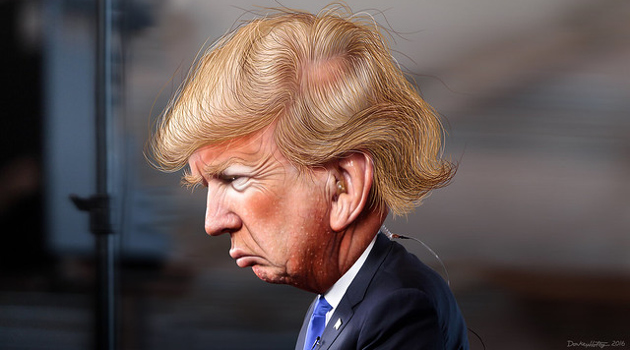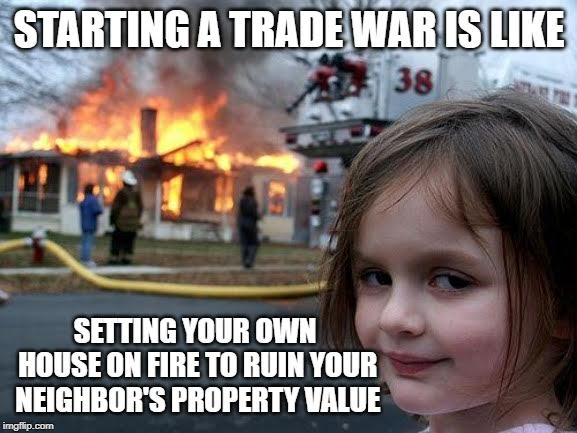Halfway through Trump’s first term, I used a set of scales to characterize his mixed economic policy.
He had some pro-growth policies such as deregulation and tax reform, and he had some anti-growth policies such as protectionism and a bigger burden of government spending.
I’m not a big fan of recycling, but I’m going to use those scales again because I think they will apply to his second term as well.
Except I worry he’ll be far worse on trade than he was in his first term.
In a column earlier this week for the Wall Street Journal, former Texas Senator Phil Gramm and current George Mason University Professor Don Boudreaux wrote about Trump’s views on trade. Suffice to say that they share my fears.
Here’s some of what they wrote about Trump’s self-harming trade policy.
Imposing a 10% tariff on all imports would more than triple the average U.S. tariff rate on all imports, which in 2022 was 2.8%, slightly above the average tariff rate for Organization for Economic Cooperation and Development countries. A 60% tariff on Chinese imports would hike the average. The surge in Americans’ costs of acquiring imports—now 13.7% of gross domestic product, the lowest of any developed country in the world—would be economically convulsive. …Productivity, wages and the return on capital would fall as we produce things at home that we could buy more cheaply abroad. This would simultaneously reduce production in industries for which our labor productivity and capital returns are higher. Moreover, because half of our imports are component parts used by U.S. producers, tariffs would further increase our production costs and reduce our competitiveness at home and abroad. …Researchers estimate that 10% across-the-board tariffs would shave a full percentage point off U.S. GDP growth. An additional 0.8% of GDP would be lost from the 60% duty on Chinese imports, raising the yearly cost per household of the tariffs to almost $4,000.
To add my two cents to this discussion, I’ll remind readers that real-world evidence is not on Trump’s side.
Contrary to what he has claimed, tariffs were not the reason America prospered in the 1800s.
And we definitely know that protectionism backfired in the 1900s by looking at Herbert Hoover’s failure and the economic decline of Argentina.
Let’s hope that some of Trump’s better advisers can steer him away from the cliff.
P.S. Sadly, Trump is not the only threat to global trade. The European Union wants to impose carbon protectionism.
———
Image credit: DonkeyHotey | CC BY-SA 2.0.




